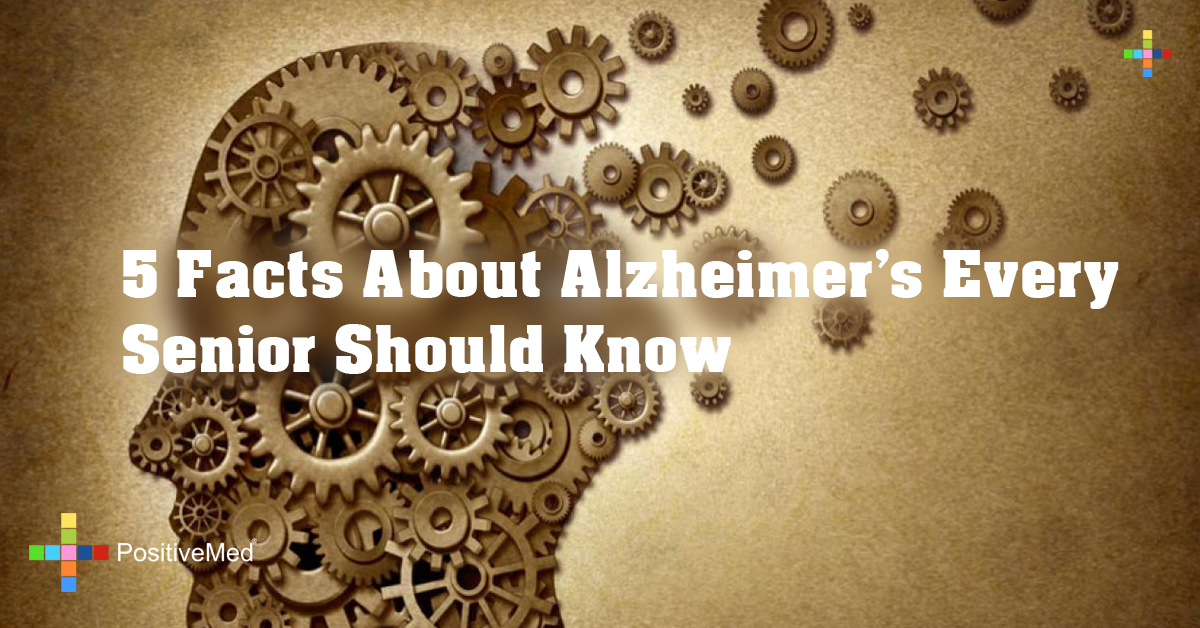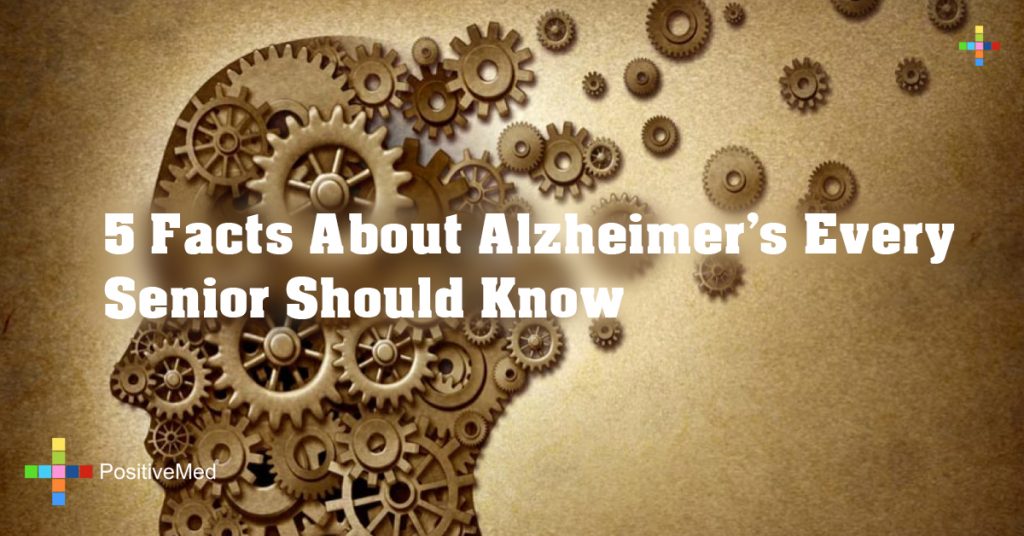
What is the best weapon for fighting Alzheimer’s Disease? Knowledge. When it comes to understanding and preventing the onslaught of cognitive decline which scares many older adults, the research and science can speak for themselves. Don’t miss these 5 facts every senior should know about Alzheimer’s Disease:
Alzheimer’s Isn’t Just Memory Loss
Decades of studies and millions of dollars have been poured into the research behind the cause and potential cure for Alzheimer’s. What experts have found so far is that ultimately Alzheimer’s is a rapid loss of brain cells which results in memory loss, disorientation, difficulty learning and adapting, social isolation, trouble making decisions, mood swings, delusions, and more.
This brain cell elimination is caused by the growth of amyloid plaques on the brain as well as tangles of the ‘tau’ protein in the brain which stifle intercellular communication. Cells are starved for oxygen and nutrients due to these two culprits, and become damaged and die off. Scientists are continuing to explore exactly why these plaques and tangles occur.
Alzheimer’s Is More Common Than You Think
Chances are you know someone with Alzheimer’s, or someone whose family member has Alzheimer’s. According to the Alzheimer’s Association, an estimated 16 million people in the U.S. will be diagnosed with Alzheimer’s in the next 25 years, ⅔ of them women. Alzheimer’s is the 6th leading killer of Americans, and an estimated 1 in 10 adults over 65 has developed some form of it. Roughly 1 out of 3 people in the U.S. over the age of 85 have Alzheimer’s as well.
Demographically speaking, African-Americans and Hispanics have a higher chance of developing Alzheimer’s compared to caucasians. There are some genetic factors which can play a role in your chances of developing Alzheimer’s as well including, inheriting the APOE-e4 gene from one or more parents.
Alzheimer’s Is Linked to Heart Disease
Leading factors which have been linked to development of Alzheimer’s Disease largely include heart disease and related cardiovascular issues. While the direct connections are still being clarified, multiple studies have revealed that risk factors associated with cardiovascular issues from high cholesterol to stroke and hypertension are more likely to lead to incidences of cognitive decline and Alzheimer’s in older adults.
According to the Centers for Disease Control, about 25% of all deaths in the U.S. can be attributed to heart disease. Additional vascular risk factors like diabetes, obesity, and smoking may also disrupt normal blood flow, lead to plaque build up on the brain, and effectively result in dementia and Alzheimer’s.

Exercise Helps Combat Alzheimer’s
Not only does inactivity weaken the heart, it can lead to dangerous weight gain, promote bad posture, and exacerbate other age-related illnesses like osteoporosis and arthritis. Physical activity, especially in older adults, has been shown to not only strengthen muscles and bones, but to protect brain cells from damage and reduce incidence of free radicals.
A 2015 study discovered aerobic physical exercise stimulated the growth of neurons and synapses in the brain, helping strengthen key areas and potentially make them less susceptible to Alzheimer’s plaques and tangles. Regular exercise might seem challenging for older adults with mobility issues, however, mobility aids like knee scooters and quad walking canes can provide much-needed support and assistance to keep them moving, and effectively improve memory and cognitive function.
Alzheimer’s and Dementia Are Not the Same Thing
For many seniors, Alzheimer’s and dementia may be thrown around in conversation interchangeably. It is important to note, however, that they are not the same thing. While Alzheimer’s is a diagnosed self-contained disease, dementia, also known as major neurocognitive disorder refers to a broad group of symptoms and degeneration of mental processes brought on by various diseases, like Alzheimer’s.
In addition to exercise, a healthy diet rich in Omega-3 fatty acids as well as regular, quality sleep, social interaction, and management of chronic disease have been shown to lower risk of developing Alzheimer’s Disease. Don’t let the prospect of Alzheimer’s frighten you or your loved one into inactivity and social isolation. The more you know from factual and scientific studies, the more prepared you will be to take healthy, proactive steps in the right direction.







